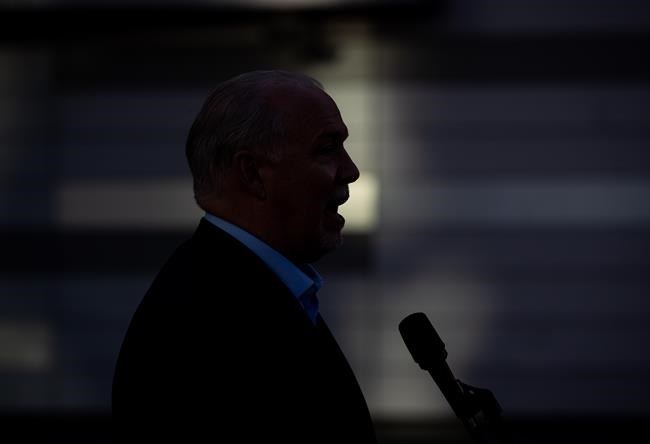VICTORIA — At the end of a recent virtual town hall meeting where about a dozen people asked questions about British Columbia's Oct. 24 election, New Democrat Leader John Horgan said he was enjoying campaigning online.
"I like this campaign where we can talk to everybody from every corner of the province without increasing our carbon footprint," Horgan said.
An election campaign during a pandemic is unprecedented, but it will be safe, he said.
But replacing all-candidates debates, community walkabouts and the travelling road shows with virtual town halls and livestream news conferences could squeeze the humanity out of the campaign and possibly dampen voter enthusiasm, says a political expert.
"Any election is a kind of a celebration of the fact that, 'Thank goodness, we have the ability to make a choice about who forms our government,' " said Prof. David Black, a political communications expert at Victoria's Royal Roads University.
"Can people get excited about politics when politics takes the form of a virtual town hall or an email to your inbox?" he asked. "We haven't answered that question yet here in B.C."
The pandemic has seen governments, businesses and families make changes they would never have considered a year ago, and the same is happening on the campaign trail, said Shannon Daub, the B.C. director of the Canadian Centre for Policy Alternatives.
Families are facing huge challenges in their home and work lives and many people are looking to political leaders for support, even though the election campaign has become an online event, said Daub.
"It certainly is the case the ground game of an election is fundamentally altered," she said. "You can't go door knocking and you can't have gatherings and you can't have rallies, but people are shifting their engagement to other places."
Black said he's concerned voter turnout could suffer when the human element is reduced and replaced with technology.
Voter turnout in the New Brunswick election, the first major Canadian campaign during the pandemic, saw little change from the previous election two years ago, he said.
Turnout in last month's election in New Brunswick was 66 per cent. It was 67 per cent two years ago.
Turnout was 61 per cent in B.C.'s 2017 vote.
Elections BC has added more advance polling days for the 2020 campaign and has highlighted the option for mail-in ballots. More than 600,000 mail-in ballots have already been sent to voters.
But elections are people-based events that involve emotions, ideas and often unscripted events where voters see the weaknesses and strengths of their leaders, said Black.
A pivotal moment of B.C.'s 2017 campaign occurred when former Liberal leader Christy Clark randomly approached a woman at a campaign stop in North Vancouver. The woman said she would never vote for her.
The awkward encounter was captured by several media outlets and was widely distributed online.
Black said those potentially shifting moments on the campaign trail likely won't occur during a virtual event.
"It reduces the ability for us to see these revealing moments and to see a leader challenged or a little shaken, or some part of him or her show up in a way that might be off-message or off-brand," he said. "We want to know these leaders as human beings."
The televised leaders debate set for Tuesday could become one of the few raw events of the campaign, Black said.
This report by The Canadian Press was first published Oct. 11, 2020.
Dirk Meissner, The Canadian Press

